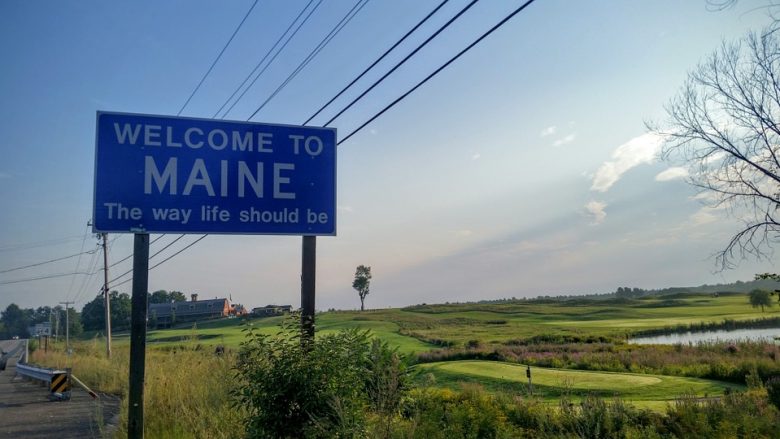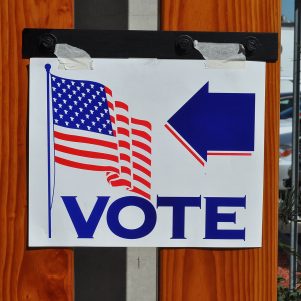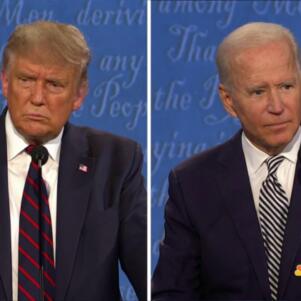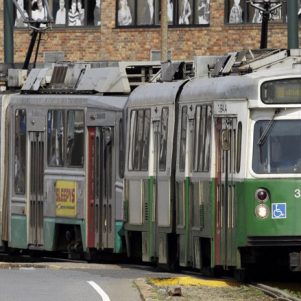Maine ballot initiative would make individual tax rate 2nd highest in nation
By Evan Lips | October 25, 2016, 18:19 EDT

AUGUSTA, Maine — Mainers on Election Day will not just be casting ballots for president, they’ll be deciding whether residents earning more than $200,000 will be required to pay a 3 percent surtax — revenue that will be set aside for schools.
The ballot question works like this — if it passes, a Maine resident making $260,000 annually will pay his or her normal taxes, plus a 3 percent tax on $60,000.
Editorial: Leave “Taxachusetts” dead and buried
Opponents of the question have pointed out that its passage would make Maine the state with the second-highest top individual tax rate in the nation at 10.15 percent, according to the Washington-based Tax Foundation nonprofit think-tank.
California remains at the top of the list with a 13.3 percent top tax rate. Maine’s rate currently sits at 7.15 percent.
The Tax Foundation’s 2017 State Business Tax Climate Index ranked Maine 30th overall, but the nonprofit warned that adoption of Question 2 will drop the state to 45th overall.
The Tax Foundation also noted that “the tax will have a harmful effect on business” despite the fact that the measure affects individual income tax rates.
Related: Connecticut income tax at 25: Where has all the money gone?
“This is because many businesses are set up as pass-through entities, meaning their profits are passed through to the business’s owners as income and they then pay personal income tax on those profits,” Morgan Scarboro, a policy analyst with the Tax Foundation’s Center for State Tax Policy, wrote earlier this month. “Pass-through businesses now earn more net business income than their traditional business counterparts.”
Related:
Scarborough referenced the Maine Heritage Policy Center, a Portland-based free market advocacy group, which estimates that about 11,450 pass-through business owners would be affected by Question 2 should it pass.
Earlier this month the center released a report highlighting the negative effects a new tax surcharge would cause. The report noted that approximately 16,480 tax filers in Maine, or about 2.64 percent of all filers, would be affected.
Using an economic model developed by Suffolk University’s free-market think-tank Beacon Hill Institute, the center projected that the Question 2 tax hike would result in the loss of 3,970 jobs in 2017, the first year the surtax would go into effect.
That figure would rise to 4,050 by 2021, according to the model, whose results are “measured against the “baseline economy” of no tax change.”
On Oct. 15, the Bangor Daily News’s editorial board officially declined to support the surtax. The editorial noted that, among other things, adoption of the surtax would relieve lawmakers of the “burden to truly fix the inequities in the state’s school funding system.”
“Even though research has shown taxes ultimately play a small role in determining where businesses set up shop, we fear negative fallout from Maine again being labeled as among the most taxed states in the nation — particularly when the jump from Maine’s current top tax rate of 7.15 percent to 10.15 percent would be such a significant change all at once,” the editorial stated.
Writing in the Portland Press-Herald, Charles Lawton, chief economist at the Portland-based Planning Decisions, a community economic planning organization, argued that passage of the surtax would hardly stop the bleeding on education money woes. Lawton noted that the initiative is “intended to replace” another ballot initiative passed in 2004 which mandates that the state contribute 55 percent of the total cost of a pre-K-12 public education, a requirement that has largely remained unenforced.
“(It) is almost certainly destined to become an equally futile feel-good gesture that will be ignored by future Legislatures in the heat of their own budgetary battles,” Lawton wrote. “Just imagine how secure this ‘lockbox’ of ‘rich people’s money’ will be when some future governor asks, ‘Well, shall we close the hospitals or the schools?’”
Jane Seidenberg, a veteran special education teacher of 15 years, wrote in a September Portland Press-Herald op-ed however that passage of the initiative would “over $150 million a year specifically to public schools.”
“The money cannot be used for administrative costs or overhead: It must go directly toward enhancing classroom instruction,” Seidenberg wrote. “This is music to my ears.”
Recent polling data released at the end of September by the Press-Herald showed that 60 percent of respondents supported the surtax, with 32 percent opposed and 8 percent undecided.










